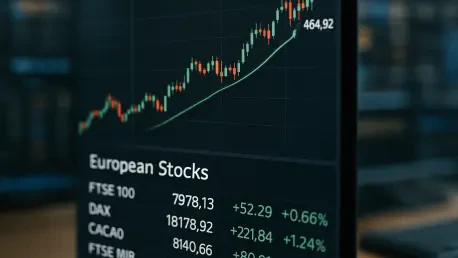
European markets demonstrated considerable resilience at the close of a turbulent week, with the pan-European Stoxx 600 index managing to reverse earlier losses and finish approximately 0.9% higher. This upward momentum, however, masked a deeply fragmented landscape where individual corporate

A High-Stakes Legal Battle Over Trade and Treasure An impending U.S. Supreme Court ruling on the legality of President Donald Trump’s tariffs threatens to send shockwaves far beyond international trade policy, poised to unlock billions of dollars and reshape the financial obligations of thousands

The fierce competition for talent that defined the post-pandemic economy appears to be officially over, replaced by a wave of high-profile layoffs and a historic drop in hiring plans that signal a significant chill in employer sentiment. As we move through the new year, the once red-hot U.S. labor

A Frigid Start to the Year for the US Labor Market The U.S. private sector labor market began 2026 on a decidedly weak note, with companies adding a mere 22,000 jobs in January. This figure, released in a new report from ADP, fell dramatically short of the consensus forecast of 45,000, signaling a

European stock markets navigated a complex session on Wednesday, closing with a mixed but slightly positive performance as a flood of corporate earnings reports gave investors plenty to dissect. The pan-European Stoxx 600 index managed to inch up by a marginal 0.1%, but this modest gain concealed

The typically steady U.S. bond market recently delivered a jolt to investors, with a sharp upward movement in Treasury yields signaling a significant recalibration of economic expectations. As a critical barometer for the nation's financial health, Treasury yields influence everything from the